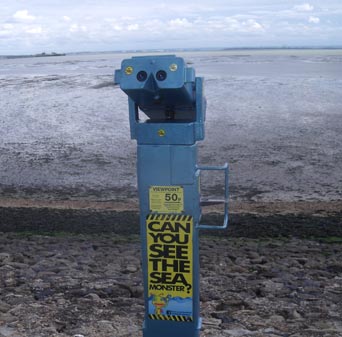A Public Spaces Protection Order (PSPO) has been the official response to public nuisances such as urinating in the street, damage to street furniture, littering, fighting, assaults and drug taking. Do they work? asks Mark Rowe.
Leigh-on-Sea and Chalkwell are picturesque seaside places, now part of the larger town of Southend and inside Southend District Council. Leigh was once a fishing village in its own right. Still it’s a place to visit on the train – these days operated by c2c – from east London. That very attraction, especially since the covid pandemic since last year made overseas holidaying difficult, has meant more anti-social behaviour, thanks partly to ‘public space drinking’ in warm weather, as a report to the council Cabinet for a July 5 meeting put it. It prompted a 1000-name petition from Leigh locals which proposed alcohol free zones in Old Leigh. Such a zone was among the local orders rolled into the PSPOs, under the Anti-Social Behaviour, Crime and Policing Act 2014.
The report that sets out both the problem and remedies is typical of many other places, that are not necessarily the first you think of that may be troubled with anti-social behaviour, as they do not appear to have social problems. Quite the opposite; that’s why Leigh draws day-trippers.
What to do? This year Essex Police have already made four dispersal orders that gives them powers to move on groups. The report to councillors said that the force had made a commitment ‘which they have said is unsustainable’ – rather begging the question of how much a commitment it actually is – to ‘increase the numbers of patrolling police officers in and around Old Leigh and Chalkwell’. Hence the police’s welcome for an order, to give them ‘another tool’ as they put it, in extra enforcement powers. However, to state the obvious, you need uniformed people to deter and if necessary enforce: as the report puts it, ‘to be visible and to respond to issues when they are reported’. And Leigh (and even Southend) are hardly the only seaside places in Essex to police.
Essex Police have stressed that they are ‘out in force day and night‘ in Leigh and Southend.
Another drawback to PSPOs is as true for the anti-social behaviour orders that they replaced, as brought in by the previous Labour government in the 2000s. As the report explained, the ‘case work and backroom administration involved (case file preparation for prosecution, case file management, court file preparation, database management of breaches / fines etc) has significantly burdened’ the council’s CSU [community safety unit]. “The CSU do not have any specialist administrative support at all – so where
officers enforce against the [Southend] town centre PSPO, they are also then responsible for all the case work preparation – which then takes them out of patrol work (and therefore no enforcement focus) while they prepare papers for prosecution etc. This weakens the CSU visible presence on the streets and unfortunately adds to further complaints from residents and councillors alike about lack of presence”, and action.
The report proposed a PSPO to cover four ‘behaviours’, again typical of the orders: consuming alcohol and behaving in an anti-social manner; using drugs or psychoactive substances; littering; and urination, defecation, or spitting. Residents also complained of things peculiar to the seaside – use of jet skis – and the more common loud music; and uncontrolled dogs and owners not clearing up after their animals; and behaviours due to an over-crowded visitor attraction: poor parking, e-scooters on pavements; stunts by cyclists; swearing; and ‘sexual activity’ in a car park.
As in many places, local government in Southend has officers doing community safety that sounds quite police-like, patrolling in pairs to handle large groups of young men drinking in public – the patrollers described as ‘well trained, experienced and are able to undertake the most demanding parts of the role, including enforcement of PSPO’. The council has also hired ‘external security staff’ to back up the CSU. However, the report points to the council’s lone working policy ‘which would not support Community Safety Officers attempting to enforce the provisions of the PSPO by issuing a Fixed Penalty Notice (FPN) in more serious situations without support from the police’ – which brings us back to police ‘resources’.
The report shows much has been done already in partnership working with others, such as the train operator c2c, for example for ‘knife arch deployment’ at stations, to capture knives carried by passengers. The council has found widespread public support for something to be done when it went out to consultation in May and June. The consultation got responses that showed how many of the ‘quality of life’ issues bother locals, and thereby local businesses, such as the throwing of bottles into the sea; and litter.
Some responses point to local government being overwhelmed and not responding to new demands; if there’s more summer litter, why not put up larger bins? The council is installing CCTV in Old Leigh to cover the PSPO area.
One resident response recalled the ‘gangs’ of mods and rockers coming by train from London in the 1960s; in other words, these nuisances are nothing new, and the authorities are still searching for ways to manage them. However, covid has put extra strain on some places desirable to visit. While all crime statistics are to be treated with caution – what’s the baseline, for a start? – the Southend CSU saw big rises in complaints of substance dealing, street drinking and ‘youth nuisance’ last year.
More on PSPOs in the August 2021 print edition of Professional Security magazine.










